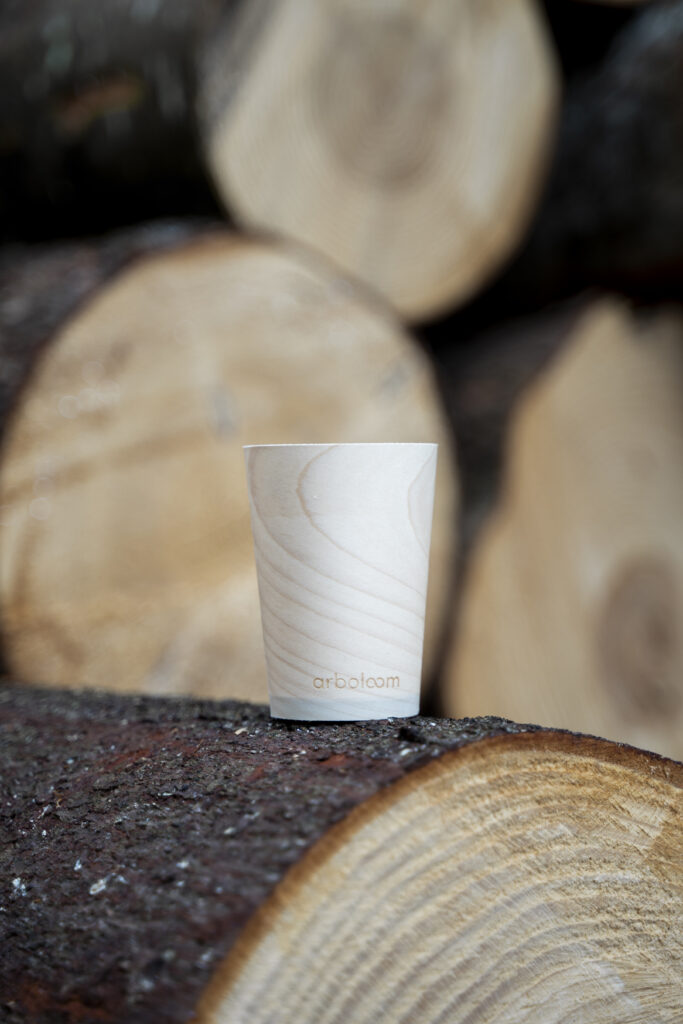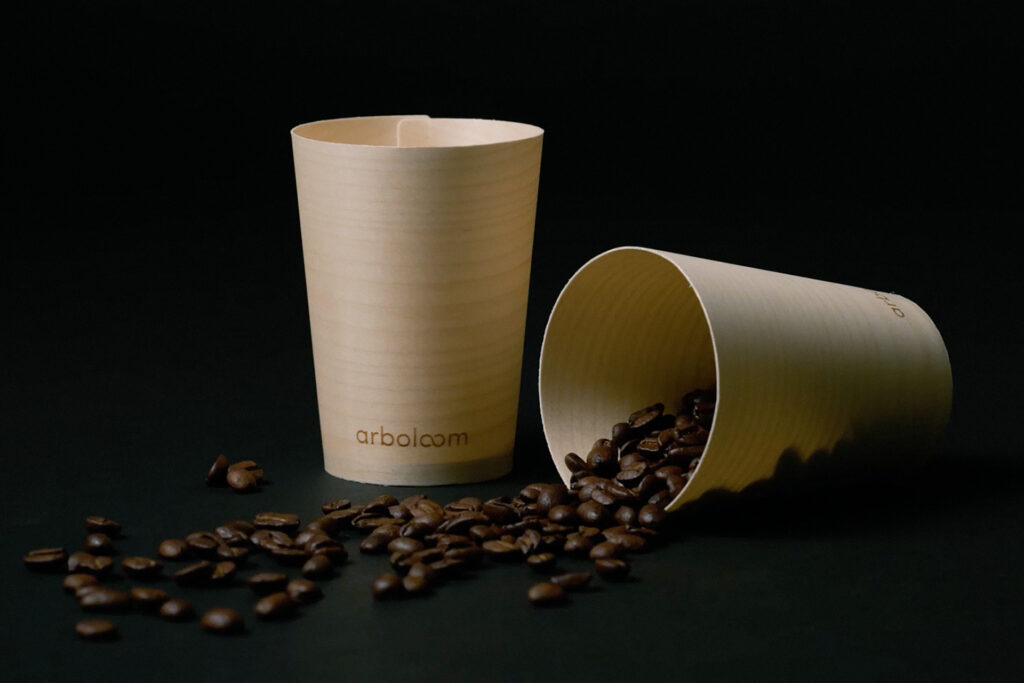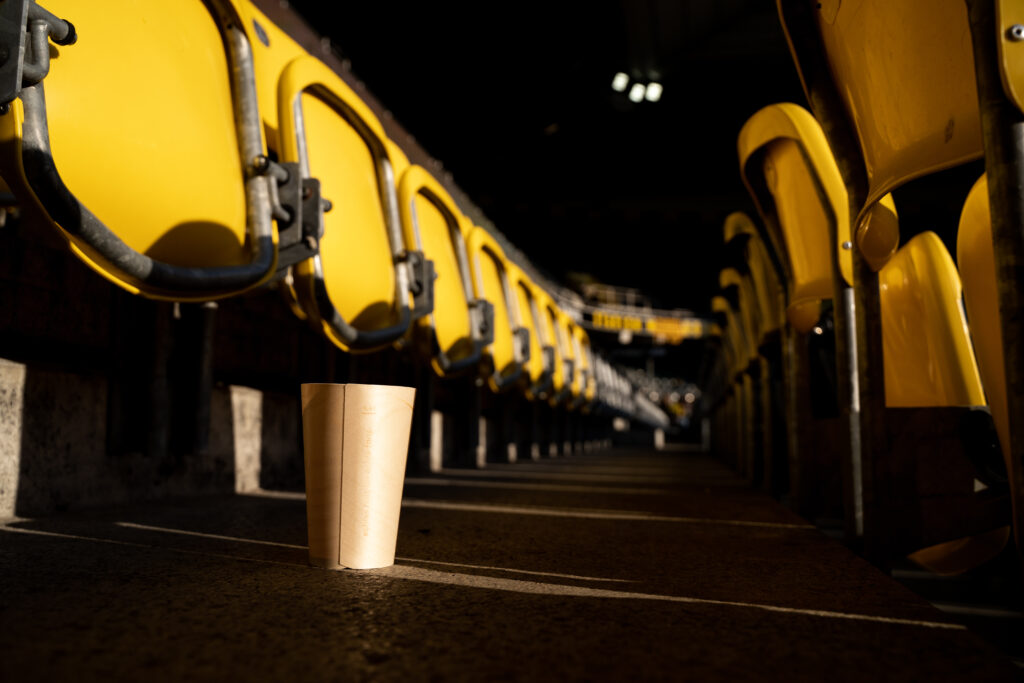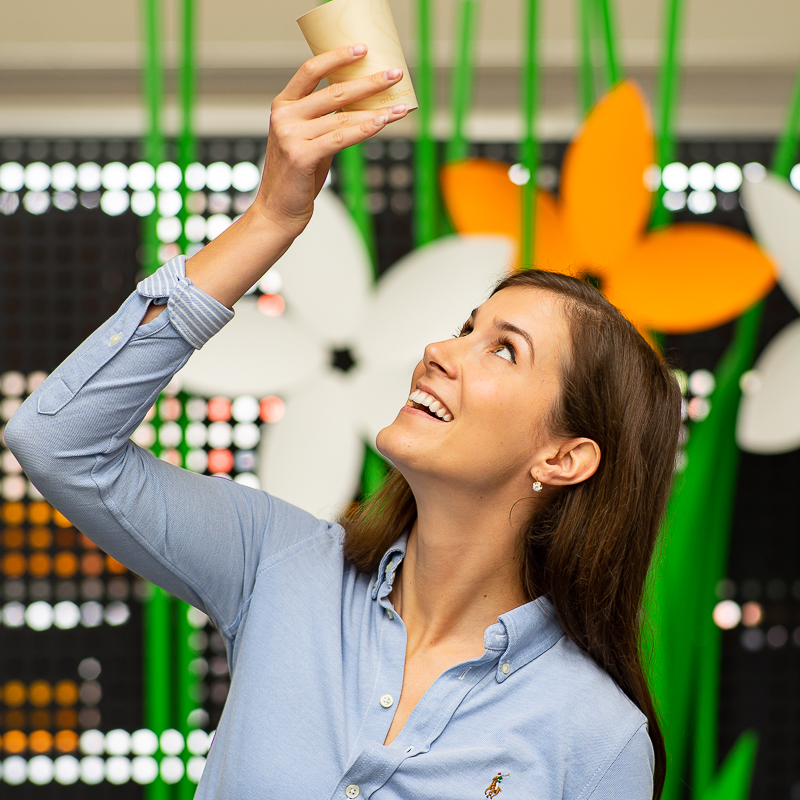Paper cups are more environmentally friendly than plastic cups, but wooden cups are even better. This is the thinking behind Arboloom Cup AG’s disposable cup made from renewable raw materials. Since the start of 2024, several tens of thousands of cups have been produced every month and used at football matches, festivals and so on.
Context
At first glance, a paper cup seems environmentally friendly – but it has its flaws. Paper production requires a relatively large amount of wood, water and energy. Then there are the bleaching agents, and the adhesive to glue the parts together. In comparison, the wooden cup from Arboloom Cup AG requires only half as much wood and no glue at all. It was developed by wood engineer Laurent Torriani in 2019 as part of a two-year development project at the Creaholic innovation factory in Biel/Bienne. After several pilot projects, Arboloom Cup AG was founded at the end of 2021 to market the product. Production started on an industrial scale in 2023, and the process was optimised at the beginning of 2024.
Technology
The wooden cups consist of two laminated layers: the base material, made from biomass, and a 0.4-mm-thick wood veneer. The bottom and walls are punched from this laminate and welded together using a patented ultrasonic process. The coating is made of a biodegradable material, rather than plastic. In close cooperation with beer sommeliers, a lot of effort was put into ensuring that users find the flavour pleasant when drinking from the cup. The insulating wooden layer ensures that drinks stay hot or cold for longer.
Maturity
The cups have been produced on a fully automated machine since mid-2024, and increasing quantities mean that they should soon be financially competitive. Distribution partnerships are already in place with the Feldschlösschen brewery, Young Boys football club and other event organisers, and initial talks have started about licensed production abroad. The cups’ use at the YB’s Wankdorf Stadium in Bern means that around eleven tonnes of plastic waste can be avoided every year. The FSC-certified wood comes from the EU, and the used cups are composted, incinerated to generate energy, or processed into chipboard for furniture by Swiss Krono in Menznau (LU). Life cycle analyses have shown that the wooden cups generate only a third of the CO2 emissions of plastic cups. A reusable plastic (polypropylene) cup has to be used 20 times before it is as climate friendly as the wooden cup.
‘Every year, 500 billion disposable cups are produced worldwide. There is enormous potential here in terms of sustainability.’ Natalia Röthlisberger, CEO of Arboloom Cup AG
This portrait is taken from the second edition of the cleantech start-up overview published in 2024. Discover the full publication here.




